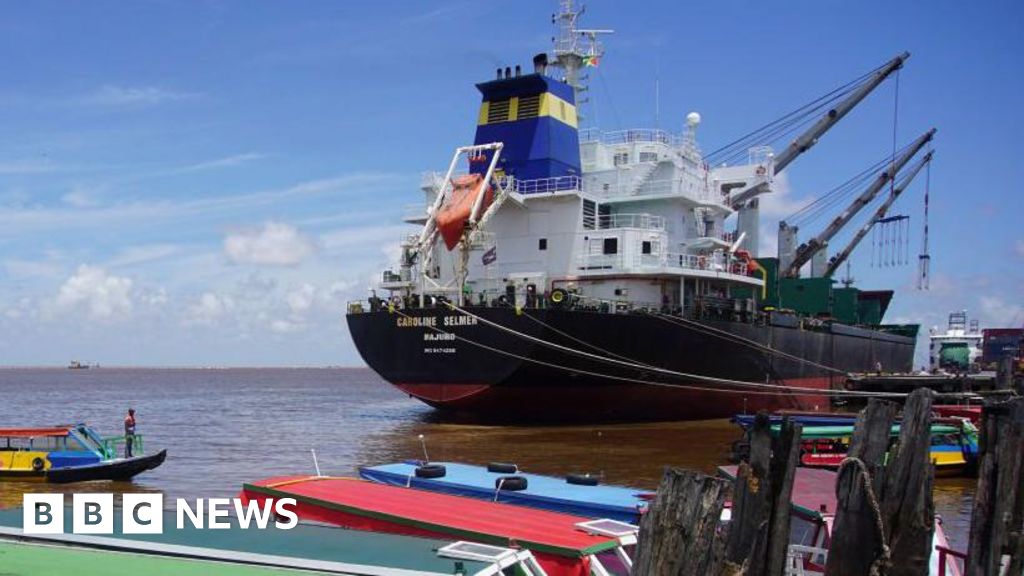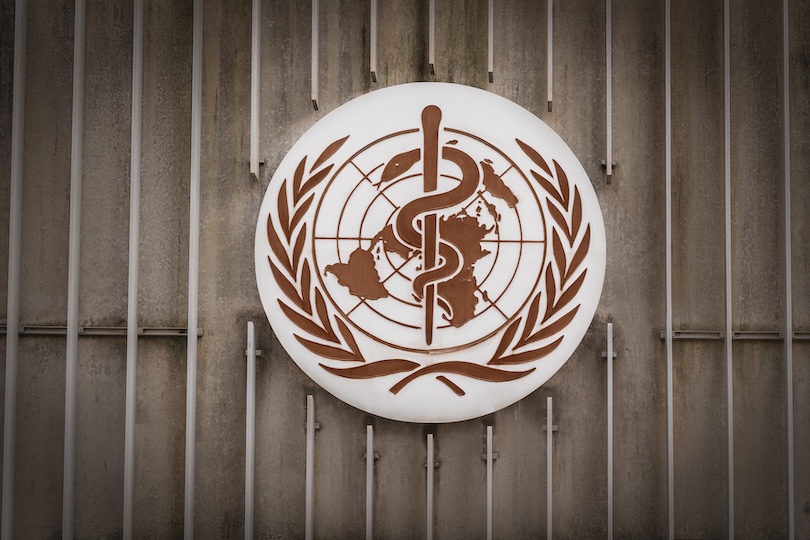Geopolitics is back as global competition and tensions mount, but what are the nature and impacts of the so-called ‘New Cold War’ in the developing world? The ‘first’ Cold War was largely fought in the global periphery and this also appears to be the case in what some see as a new iteration or continuation of this conflict. This has been partly driven by a resurgence in ‘domino’ thinking where developments and orientations in the periphery are thought to have potentially substantial implications for the ‘core’. Africa has in recent decades become, at times, a site of intense competition between ‘great’ powers – the US, Russia, and China as the latter’s presence on the continent has expanded economically and in terms of political and other engagements. Is this rivalry then indicative of a new Cold War on the continent which may result in emergence of new alignments or blocs, or can African actors leverage competition to balance external powers to their own, or their countries’ benefit?
Leoni sees the New Cold War as “global competition; systematic implications in the international order; and, most importantly, a high level of friction falling short of direct hostilities”. Others argue however that the power imbalances between China and Russia and their discordant goals, with the former generally favouring international stability, “do not suggest a resurrected authoritarian bloc in a new Cold War”. These differences in opinion about whether or not there is a new Cold War depend however on definition. What is clear though is that we are now in an era of heightened international competition between ‘great powers’. Africa is now one of the ‘battlegrounds’ in the contest between the ‘geopolitical West’ (including Japan and South Korea for example) and the emergent Eurasian ‘alteraxis’ with a China-Russian core. This competition has a variable geometry and geography, with certain parts of Africa, or at least their governments, effectively allying or aligning with Russia and China, which uphold, in principle at least, the idea of hard shell sovereignty; particularly in places far from their regional ‘spheres of influence’. How is this competition between (re)emerged and other ‘great’ powers being played out in Africa and with what implications?
External Power Interests in Africa
While it has been widely acknowledged that there was a ‘New Scramble for Africa’ from the early 2000s, competition has now moved from being primarily geo-economic to being more broadly geo-strategic on the continent. External states have a variety of interests in Africa, which include resources, markets, and the associated security of supply and demand, in addition to geopolitical ones. The vast majority of what Africa exports are primary materials, with fossil fuels accounting for about half of total exports, depending on prices. It is host to many ‘strategic minerals’ necessary for the ‘green transition’, such as cobalt, needed at the moment for electric car batteries, with 70% of ‘global’ reserves located in the Democratic Republic of Congo.
Africa is also a substantial market for manufactures, with a population of 1.4 billion people and a site for so-called Contracted Overseas Projects. These are particularly significant for Chinese construction firms who earned a third of their total overseas revenue on the continent until recently. Chinese companies are now the largest grouping in the Global Fortune 500 index and their geographic reach is extensive, with 70% of broadband infrastructure in Africa built by Chinese firms which gives them ‘latent structural power’. This might reinforce or prefigure other forms of ‘delinking’ from the West. Whereas the ‘old’ Cold War between the West and the Soviet bloc was around territorial influence and control, the new one is arguably and largely around centrality in networks of technology, infrastructure, finance and others.
External actors also have more explicitly geopolitical interests on the continent, such as support in international organisations and fora, and the prevention of conflict ‘spillovers’ and piracy. They also have geocultural ones, such as the reinforcement of geopolitical identities and self-understandings, as well as the desire for respect. They view the continent through different geopolitical codes, with the US emphasising charity and more latterly security and infrastructure development in competition with China for example. On the other hand, China has had a more explicit geoeconomic focus, with a priority put on resource and market access on the continent, at least until recently.
Foreign power engagement on the continent, and particular regions of it, is dialectical, however, as there are also sometimes political imperatives for disengagement as a result of contradictions generated and also political ideologies. When President Donald Trump was previously in office in the US, he largely disengaged from the continent in favour of an ‘America first’ policy approach. France pulled its troops out of Mali in 2022, as relations with the military junta soured – it had sent troops there in 2013 under the so-called Opération Serval to forestall an Islamist takeover of the country. The new Alliance of Sahel States of the military-led governments of Niger, Mali, and Burkina Faso has been explicit about its desire to rid the continent of neocolonial French and other Western interests, with the US also withdrawing troops from Niger. These states have however sometimes turned to Russia for ‘security cooperation’, giving the New Cold War an emergent territoriality rather than just networkality socio-spatial structure, although the two co-constitute. However, African actors prioritise their own interests, with the Malian junta abstaining on a vote at the United Nations to condemn the Russian invasion of Ukraine, as there is little margin in being dragged into the global conflict between ‘great’ powers. Nonetheless this competition has impacts on the continent.
The Alteraxis Powers in Africa
Russia’s rising role is expressed through, amongst others, the ‘Russophere’ (internet disinformation), the paramilitary Wagner Group (now merged into the Russian army Africa Corps) and security cooperation agreements with 43 countries on the continent. Anti-Western disinformation campaigns help foster demand for Russian security assistance, but according to Samuel Ramani, its army’s poor military performance in Ukraine has dented its arms sales in Africa, as these may be seen as inferior, and are also increasingly required for domestic consumption. Consequently, Russia is no longer the top supplier of arms to the continent. Nonetheless, it still offers some states in Africa a ‘regime survival package’, through the deployment of troops in exchange for mining rights for example. There is increasing demand for this in the context of disruptions such as climate change, as temperatures in the Sahel are rising at 1.5 times the global average, which increases poverty, feeding discontent and rebellion. However, it is China’s presence and influence which looms larger, given its massively bigger economy and other power resources, such as the world’s largest foreign exchange reserves.
One of the secular trends of the 21st century has been the heightened importance of China in Africa and while this may appear set to continue, there has been a dramatic contraction in loan funding for China’s signature foreign policy – the Belt and Road Initiative (BRI) since 2016. Many of China’s highest-profile projects have been mired in controversy, such as the multi-billion dollar Standard Gauge Railway in Kenya. Chinese foreign direct investment to the continent also fell by almost 50% from 2018–19, before the pandemic and the new (2020) ‘dual circulation strategy’ in China places a greater emphasis on domestic market expansion. This economic retrenchment was however offset by greater so-called ‘soft power’ engagements, such as the offering of more scholarships for African students to study in China. This represents an attempt to construct Chinese hegemony, which has or is, also being attempted in other regions. There has also recently been an attempt to ‘reboot’ the BRI globally and this was evident at the recent Forum on China-Africa Cooperation (FOCAC) in Beijing where new loan, aid, and investment commitments of US $50bn were unveiled, although some of this is central bank swap lines of credit to allow debts to continue to be serviced. This reactive, adaptive approach is in keeping with China’s overall ‘grand strategic relational’ foreign policy and is a more attractive offer for many African political elites. Its embedded influence on the continent is also growing as a result of initiatives such as the setting up of a governance school in Tanzania by the Chinese Communist Party and regional ruling parties, which teaches the merits of state-party fusion for example.
Chinese state-owned enterprises (SOEs) or corporations often compete aggressively overseas for business and operate under conditions of ‘bounded autonomy’ in relation to the state. This represents a distinctive structure of power which can be thought of as ‘webpower’, where the centre directs or sets the incentives for the improvisation in commercial strategies by the nodes (such as SOEs). This structure of power is simultaneously both concentrated and diffuse. For example, Huawei, the Chinese telecommunications giant has been controversial globally and in Africa. Notionally, it is a private company, but in reality, the vast majority of voting rights are held by a Chinese Communist Party-affiliated trade union. It has been implicated in hacking scandals in the African Union (AU), and in spying on opposition politicians in Zambia and Uganda. This power structure is adaptive and reflexive, giving China a substantial geopolitical competitive advantage.
While some see China winning the global competition in technology, others argue that ‘Global China’s’ strategies have generated substantial push and blowback. In Zambia, which had become heavily indebted to China, the structural power of Western-dominated international financial institutions is demonstrated by the recent loan agreement with the International Monetary Fund (IMF),which included the condition that the country would “totally cancel 12 planned projects, half of which were due to be financed by China EXIM Bank, alongside one by ICBC [Industrial and Commercial Bank of China] for a university and another by Jiangxi Corporation for a dual highway for the capital”. At the same time, World Bank projects, mostly focused on social sectors, such as health and education, continue. However, as China’s economy has slowed and its ‘external’ financial resources have become more constrained, there has been a new focus on ‘elite capture strategies’.
African Agency
What can Africa-based actors do in such a rapidly changing context, particularly with the (re)election of Donald Trump as President of the United States? In much of the academic literature on Africa, there has been a tendency to present domestic actors, including political elites, as powerless in the face of overweening external powers. For example, this has been one of the criticisms levelled against discussions of the ‘New Scramble for Africa’. The (re)emergence of (new) powers, particularly China and India, but also others such as Turkey and the Gulf States (e.g. Saudi Arabia and the United Arab Emirates) in Africa has given political elites on the continent more ‘balancing’ options with Western ones and the ability to strategically play sides/states against each other, depending on the issue. They may also ‘bandwagon’ or ally with particular powers if that is perceived to be more advantageous. Sometimes, different elites seek assistance from opposed external powers, with Saudi Arabia and Egypt supporting the Sudanese government, and the United Arab Emirates the Rapid Support Forces in the civil war in that country. However, dependence on external powers is shaped or constrained by regime survival tactics and interests. For instance, where it is felt there might be an over-dependence on a particular external state, this may be revised, as it happened in the case of Angola in relation to China recently.
Many states on the continent want to benefit from their links and engagements with both Eastern and Western powers; often giving rise to a position of non, poly or “omni-alignment”, where states refine their strategies and, to a certain extent, interests to accord with those of different external actors depending on the issue. In this ‘game’, the goal is to maximise benefits and policy latitude by playing different sides or powers off against each other by selectively cooperating with them.
Global-level multilateralism is now in crisis and transactional (geo)politics is now in the ascendant. In such a context, who can offer African leaders the best deals comes to the fore. In this context, China is generally better positioned given its state control of, or influence over, state-owned and other enterprises headquartered in that country, its massive foreign exchange reserves, policy banks, and other vectors of influence.
While Western fora are often perceived to be ‘talking shops’, China and Russia deliver (regime) support, security and (under)development with no, or at least relatively few, questions asked. China for example has financed hundreds of large-scale infrastructure projects across the continent, even as its manufacturers have often outcompeted indigenous firms in local markets. This political and economic combination is a more attractive offer for many African political elites and may be reflected in the fact that “the statistics show that the world is back where it was at the end of the (“first”) Cold War, with more or less the identical number of democracies and authoritarian regimes as in 1990. Out of the 173 countries analysed…104 can be labelled as democracies”. Thus the ‘agency’ of some African political elites may increasingly repress that of ‘ordinary’ citizens in the context of ‘democratic backsliding’. Such repression of dissent and the creation of ‘illiberal peace’, where it can be achieved, may be acceptable to Russia, China, and the US under Trump, even as the different powers compete around economic interests and political influence. However, Trump’s disdain for Africa and his general isolationalist stance in foreign policy may leave ‘the field’ more open to China and Russia in his second administration, except where countries explicitly side with the US and may consequently be supported as laid out in Project 2025, which was largely authored by officials from his first administration. This document for instance talks about potentially recognizing Somaliland as a state, to serve as a counterpoint to perceived heavy Chinese influence in neighbouring Djibouti, where a Hong Kong company is meant to build Africa’s first space port.
Conclusion
While in the ‘first’ Cold War African countries were often part of, or allied to either the Eastern or Western blocs, this is generally less likely now given the deep interconnectedness of the global economy, with China and the US as prime examples. Rather it seems more likely that African elites will generally seek to balance between the two superpowers or blocs, except where it is felt that alliance with, or preference towards one is more advantageous to regime survival, as is the case with the Alliance of Sahel States. As Russia and China are likely to increasingly support ‘hard shell’, ‘sovereigntist’ authoritarian states on the continent, pressure for democratization from the Western powers is also likely to retreat, particularly with Donald Trump’s return to power in the US and his seeming preference for autocratic interlocuters, such as President Al Sisi in Egypt who he dubbed his favourite dictator.
The New Cold War may benefit African political elites, and there may be side or ‘spillover’ benefits for populations in terms of access to infrastructure, although China has retrenched in this area in recent years and Western powers seem not to have the coordination capabilities to effectively compete in this area. As Carlos Lopes notes “Africa’s growing global influence, exemplified by achievements like G20 [Group of 20] membership, signals a continent ready to assert itself”. However, political rights may suffer from the empowerment of elites, generating future resistance and potentially further ‘hot’ conflict.

 Movie
Movie 3 months ago
80
3 months ago
80 






![Presidents Day Weekend Car Sales [2021 Edition] Presidents Day Weekend Car Sales [2021 Edition]](https://www.findthebestcarprice.com/wp-content/uploads/Presidents-Day-Weekend-car-sales.jpg)



 English (United States)
English (United States)